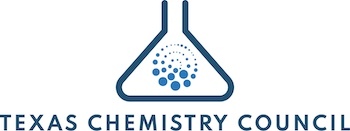Complete Story
09/12/2024
Logan's Legal & Regulatory Corner: TCC joins petition to challenge EPA’s Voluntary Bump-Up Rule
LOGAN’S LEGAL & REGULATORY CORNER
TCC joins petition to challenge EPA’s Voluntary Bump-Up Rule
Texas Chemistry Council, et al. v. EPA, Docket No. 24-60428 (5th Cir.)
On August 19, 2024, TCC, TXOGA, and BCCA filed a joint petition challenging certain aspects of EPA’s final rule that approved Texas’s request for reclassification of the San Antonio, DFW, and HGB nonattainment areas for the 2015 Ozone NAAQS from Moderate to Serious. Specifically, this legal challenge concerns EPA’s insistence that TCEQ must submit revisions to the State Implementation Plan based on Moderate classification deadlines despite the reclassification to Serious, which provides for extended deadlines. This challenge will also seek to prevent EPA from imposing sanctions on Texas for not timely submitting those challenged elements. These sanctions will have a direct impact on major source air permitting if EPA is allowed to proceed.
TCEQ, through the Texas Attorney General’s Office, also filed a petition for review challenging EPA’s decision to continue requiring SIP revisions based on the Moderate classification deadlines. TCC will engage with the TCEQ to ensure the arguments are effectively conveyed to the 5th Circuit.
Texas 15th Court of Appeals deemed Constitutional In re Dallas County, Docket No. 24-0426 (Texas Supreme Court)
On August 23, 2024, the Texas Supreme Court declared the new 15th Court of Appeals is constitutional and rejected Dallas County’s arguments. In 2023, the Texas Legislature created this court and granted it exclusive appellate jurisdiction for civil cases concerning disputes involving the state or its agencies, constitutionality of state laws, and cases appealed from the new business courts. Earlier this year, Dallas County filed a challenge with the Texas Supreme Court alleging the new court is unconstitutional in order to prevent one of its cases from being transferred from the 3rd Court of Appeals. Specifically, Dallas County claimed the 15th Court’s statewide geographic range, scope of its exclusive jurisdiction, and the initial appointment of justices were unconstitutional.
The Texas Supreme Court was not persuaded by these arguments. The Court confirmed that the Texas Constitution provides the Legislature with substantial authority and discretion over the appellate court system, including geographic reach and scope of jurisdiction. Moreover, Governor Abbott’s appointment of the three justices is consistent with current election statutes that dictate how judiciary vacancies may be filled.
This ruling is significant to our industry. Historically, any TCEQ contested case that is appealed lands in the 3rd Court of Appeals in Travis County whose justices are elected by voters primarily in and around Austin. The 3rd Court of Appeals is known for not being a business-friendly jurisdiction and the 3rd Court often rules on cases involving businesses from across the state. It is for this very reason that the Legislature created the 15th Court of Appeals with justices elected statewide to handle cases involving businesses throughout state.
The 15th Court of Appeals is currently made-up of three justices appointed by Governor Abbott. Starting in 2026, the 15th Court will have five justices elected statewide.
The Texas Supreme Court issued an order, found here, listing all cases that have been transferred to the new court. TCC will continue monitoring how the new court prioritizes some key cases involving the TCEQ or other state agencies.
TCEQ’s informal comment period closes soon for potential Section 185 Fee Program
TCEQ is currently accepting informal comments until September 9 2024 regarding a Section 185 fee program because the DFW and HGB nonattainment areas are classified as Severe for the 2008 Ozone NAAQS. Unless these areas achieve attainment with the 2008 standard, the annual Section 185 fees are estimated to be $45 million for DFW and $154 million for HGB starting in 2028.
These comments will inform TCEQ on all aspects of this program, including baseline facility calculations or flexibility in alternative fee programs. During a stakeholder meeting last month, TCEQ stressed the importance of commenting at this stage because the formal comment period will not be extended due to EPA’s submittal deadline.
Here is the overall timeline for the rulemaking process:
- September 9, 2024 – deadline to submit informal comments.
- ~April 2025 – potential proposal of the TCEQ Section 185 fee rule (specific date varies by Agenda date)
- ~April-May 2025 – public comment period and hearings
- September 2025 – potential adoption of TCEQ Section 185 fee rule
- November 7, 2025 – deadline TCEQ must submit rule to the EPA (this date is firm)
TCC is leveraging the expertise of the Air Conservation Committee, the Legal Advisory Group, and other external stakeholders to craft informal comments for TCEQ’s consideration. You may also provide informal comments to the TCEQ, which can be emailed to 185Rule@tceq.texas.gov.

